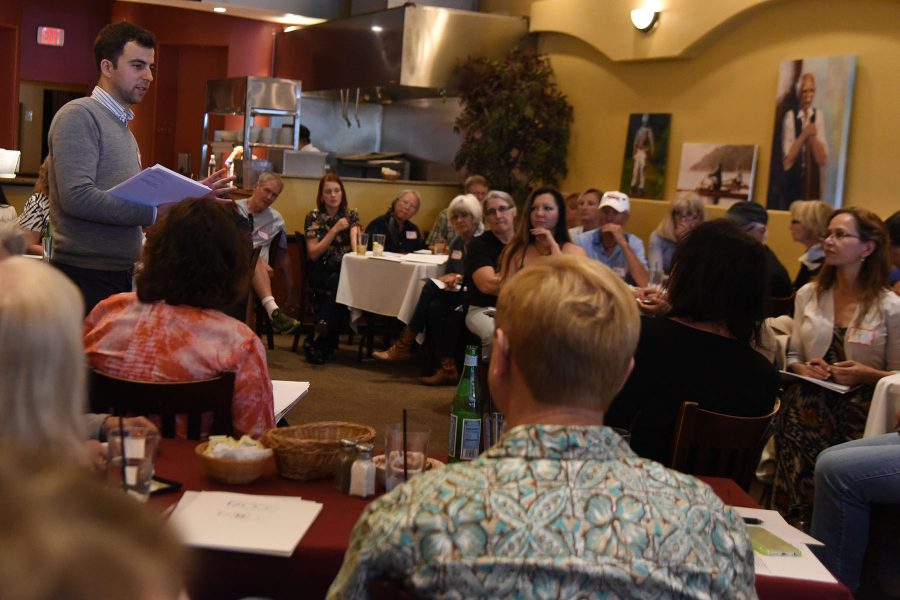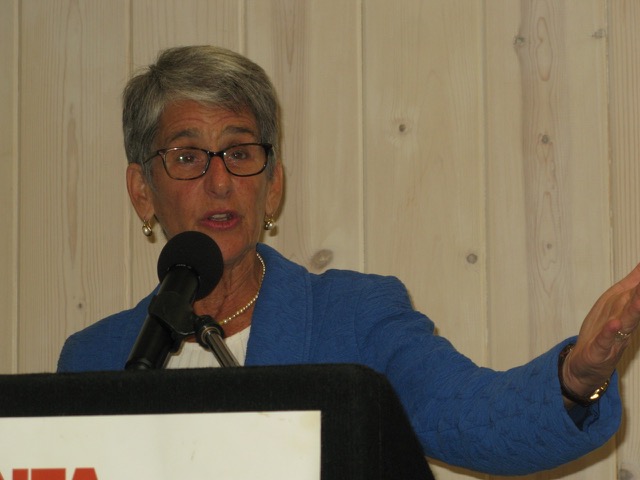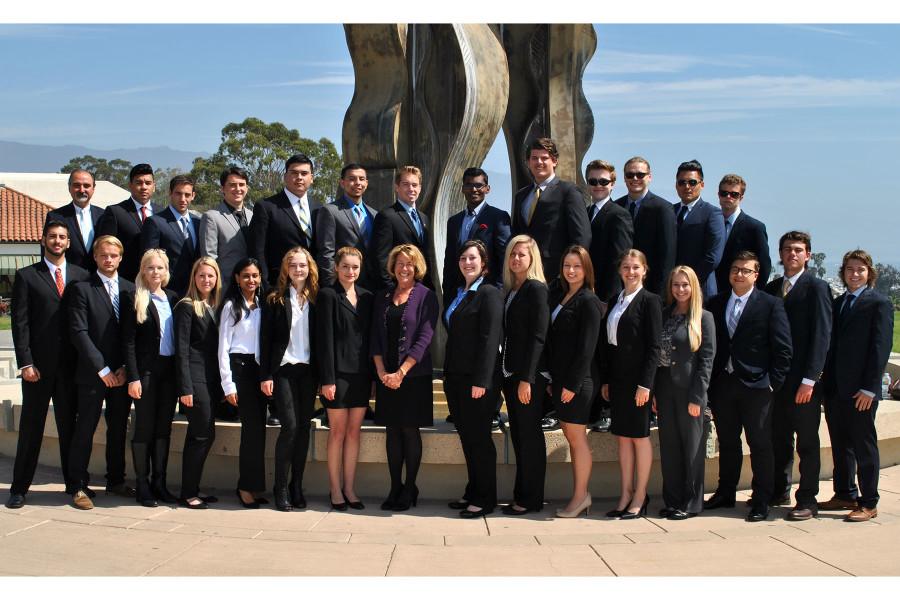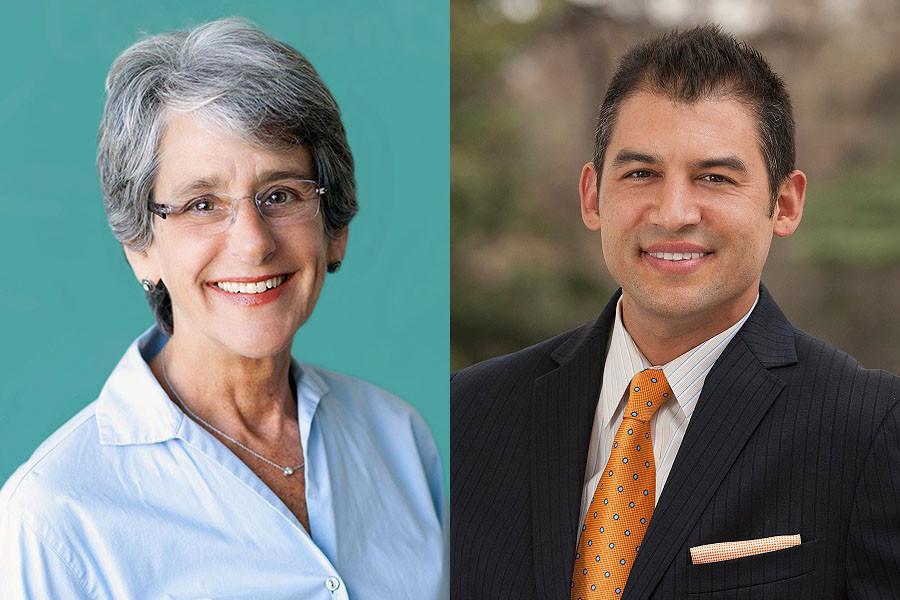Around 45 part-time, current and retired faculty members from different colleges gathered in a crowded room on Friday for a workshop to shed light onto some of the issues they face.
The Faculty Association of California Community Colleges held the workshop, called “The Real Drought in California: Lack of Support for Part-time Faculty,” for adjunct faculty at 3:15 p.m. April 15 at the Mesa Cafe. They discussed what the association is doing to help part-time faculty and how they can get involved.
Evan Hawkins, director of political and member outreach for the association, moderated the discussion and said that faculty should try to talk to state leadership directly.
“They are tired of talking to us,” said Hawkins. “They really want to hear from the faculty and the students.”
City College’s Instructors’ Association and the Continuing Education Instructors’ Association sponsored the workshop.
“It’s our job that we get our legislatures obviously educated on the issues that affect you all,” said Hawkins. “But also that we get good folks elected into the Capitol, and that’s a big part of it.”
The faculty association works with the State Capitol, the State Chancellor’s Office and the State Teachers’ Retirement System, and provides specialized representation for community college faculty.
“They are there for us, in all capacities too,” said Sally Saenger, part-time instructor at City College. “Even though as non-credit or CLL [Center for Lifelong Learning] instructors we may not be a part of the instructors’ association, we still reap a lot of the benefits.”
Monique Limon, who is running for the seat that will be left empty by Assemblymember Das Williams, was also attending. She looked to better understand the issues that affect part-time faculty in hopes of better addressing them if she wins. Trustee Martee Blum also attended.
The main issues brought up at the event were lack of job security, representation and power to change things at the college.
At City College, instructors who work for at least three years, or six semesters, and have no bad evaluations, have to be offered at least one class, according to Jeffrey Gray, adjunct math instructor and member of the Instructors’ Association. However, that doesn’t always happen.
Jack Sanford shared that he was replaced after working at City College as a full-time physical education instructor for 29 years. After working all those years and serving as the head coach on the tennis team, he retired, teaching one class in the spring and one in the fall, until 2015.
“After over 50 years at City College I was ‘fired,’” Sanford said,
He clarified that he was not technically fired, but was replaced. Sanford is protesting on the basis of age discrimination and retaliation for “protesting the suspension of the men’s tennis team in 2014,” and complaining about Measure S.
“The adjuncts have to have some sort of representation.” Sanford said. “I had no recourse.”
Molly Laula, a non-credit English as a second language instructor, sent around a signup sheet to form a committee to talk to Cornelia Alsheimer, president of the Instructors’ Association and senator on the Academic Senate.
“We are faculty, but we are not a part of the bargaining process because we are non-credit,” Saenger said.
Hawkins and others stressed the importance of the power in group representation.
“When one person goes up against the system you probably won’t be successful. You need a group,” said Susan Braden, who is retired and had to change jobs because she wasn’t making enough for retirement at as a part-time faculty member.
Hawkins spoke about two bills, both introduced by Assemblymember Jose Medina, that the association is trying to get passed which specifically benefit part-time faculty. Assembly Bill 1690 would stop part-time faculty from being unreasonably fired and assure re-hiring. Assembly Bill 2069 deals directly with stressing enough office hours, one of the largest issues for part-time faculty, as necessary for student success.
“There are lots of protections in California that we should be thankful for, but they didn’t just happen,” Hawkins said. “There is a reason why we have the sort of protections we have, and there’s a reason we can get where we want to be.”
He encouraged faculty to get involved with the association, and again, to talk to leadership directly.
“I hope you don’t get too cynical if all the problems don’t get fixed tomorrow,” he said.














